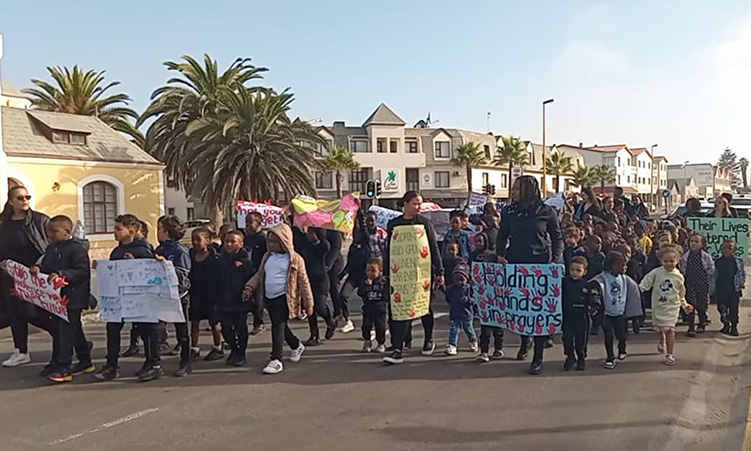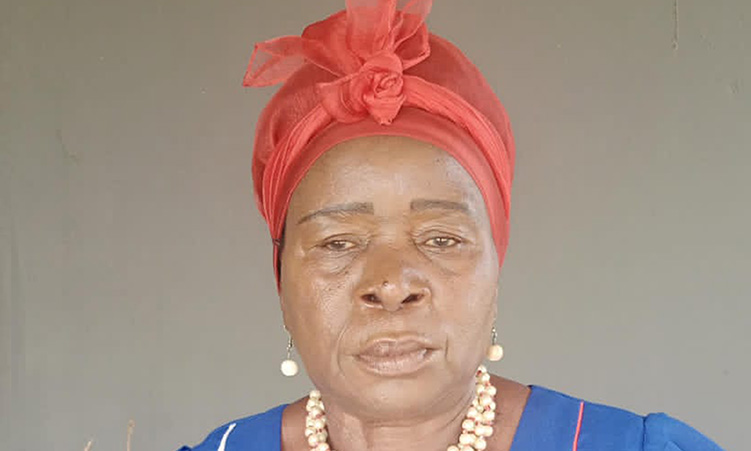A GOOD number of Namibians have a close a relative who is a teacher.
In some cases there are those like myself who were raised under Apartheid by a mother who is a teacher. Teaching, nursing and the occasional medical doctor were perhaps the only professions that served as mirror images of a native who has succeeded to do something with their lives.Independence was then a moment of cataclysmic proportion in terms of opportunities beyond teaching and nursing.The dividend of our peace finds lucid expression in our material benefits from the boon of Independence by affording lifestyles that are at times way beyond our counterparts in the developed world.Independence has allowed us to become senior civil servants, farmers, politicians, members of liberal professions and businesspeople.Often we carry three or more of these hats.In our pursuit of being civil servants, businessmen, commercial farmers and politicians, we have lost, or are confused about the pertinent compass that should drive a just society: empathy or what the French would frame as fraternité (fraternity).The French sociologist Emile Durkheim would refer to our current situation as “anomie”: a condition where social and/or moral norms are confused, unclear, or simply not present.Durkheim felt that this lack of norms, the absence of pre-accepted limits on behaviour in a society, led to deviant behaviour.Durkheim also discussed anomie’s effect on the goals of individuals, as well as their corresponding happiness.As social restraints are weakened, humans no longer have limits upon their desires and aspirations.But Durkheim warns that, “one does not advance when one proceeds toward no goal, which is the same thing – when the goal is infinity”.”To pursue a goal which is by definition unattainable is to condemn oneself to a state of perpetual unhappiness”.Durkheim is extremely useful here because such confusion is pervasive in post-colonial Namibia, we want to be so many things in our lives: civil servants, employees, businesspeople, and politicians all at once.Oddly, Namibia is a country where you meet senior civil servants and politicians who carry flagrantly the hat of a businessperson with blatant business dealings with the government.My concern here is not necessarily one of ambition in a post-colonial Namibia.Apartheid deprived us materially and intellectually.And the perverse effect of that is that we are all money-hugging human beings and want to own in order to exist.On the whole, in every society, the individualistic and the communal, autonomy and solidarity are twin strands that are in tension.But it is an issue of consideration for the social norms that we seek to instil in our society.The danger does not necessarily lie in individuals pursuing what they believe to be capable of doing, but it is the deviant behaviour that such situations engender.Unless Namibians are a gifted people, I don’t think that history has given us all the material that makes us to be all these things at once.It is simply a desire to be self-reliant (informed by our post-colonial condition) which has transformed into selfishness and licence, ambition into greed and a frantic desire to succeed at any cost.As such, corruption flourishes in this context where regulation is weak or where we blatantly ignore the rules of engagement.Even in the absence of clear rules, it demands a social conscience to realise that as senior civil servants or politicians it is incumbent upon us to defend the interests of society.So, we are not just dealing with an absence of rules, but also an absence of norms and values.A return to norms and values would in essence mean that if a free Namibia has provided me with an opportunity to be a permanent secretary or a minister for 18 years (and my wife a parastatal CEO), I am sufficiently empowered in a manner that should make me refrain from benefiting from tenders from government ministries or state-owned enterprises.Society is in anomie if those of us who are well-off value nothing other than being self-reliant to a point where we outbid junior civil servants, teachers and nurses from their homes in Katutura.On the whole, what are we saying to average workers who bear the biggest brunt of the rising cost of living? It is anomie when true entrepreneurs (those who take the risk of being businesspeople) lose tenders to senior civil servants and politicians who masquerade as businesspeople.It is anomie when a businessperson must include a politician or a senior civil servant in his/her company to get a government tender.Society is also in anomie when we can’t distinguish between a senior civil servant and a politician or a politician from a businessperson.To deal with this anomie, we need both cultural transformation and government action to change our values.It may perhaps demand us to think with the humility of the teachers, nurses and civil servants who raised us.And if it means enforcing existing rules or crafting new policies to protect us from a parasitic elite, government leaders must be at the forefront of creating and defending a just society and not its violation.* Alfredo Tjiurimo Hengari is a PhD fellow in political science at the University of Paris- Panthéon Sorbonne, France.Teaching, nursing and the occasional medical doctor were perhaps the only professions that served as mirror images of a native who has succeeded to do something with their lives.Independence was then a moment of cataclysmic proportion in terms of opportunities beyond teaching and nursing.The dividend of our peace finds lucid expression in our material benefits from the boon of Independence by affording lifestyles that are at times way beyond our counterparts in the developed world.Independence has allowed us to become senior civil servants, farmers, politicians, members of liberal professions and businesspeople.Often we carry three or more of these hats.In our pursuit of being civil servants, businessmen, commercial farmers and politicians, we have lost, or are confused about the pertinent compass that should drive a just society: empathy or what the French would frame as fraternité (fraternity).The French sociologist Emile Durkheim would refer to our current situation as “anomie”: a condition where social and/or moral norms are confused, unclear, or simply not present.Durkheim felt that this lack of norms, the absence of pre-accepted limits on behaviour in a society, led to deviant behaviour.Durkheim also discussed anomie’s effect on the goals of individuals, as well as their corresponding happiness.As social restraints are weakened, humans no longer have limits upon their desires and aspirations.But Durkheim warns that, “one does not advance when one proceeds toward no goal, which is the same thing – when the goal is infinity”.”To pursue a goal which is by definition unattainable is to condemn oneself to a state of perpetual unhappiness”.Durkheim is extremely useful here because such confusion is pervasive in post-colonial Namibia, we want to be so many things in our lives: civil servants, employees, businesspeople, and politicians all at once.Oddly, Namibia is a country where you meet senior civil servants and politicians who carry flagrantly the hat of a businessperson with blatant business dealings with the government.My concern here is not necessarily one of ambition in a post-colonial Namibia.Apartheid deprived us materially and intellectually.And the perverse effect of that is that we are all money-hugging human beings and want to own in order to exist.On the whole, in every society, the individualistic and the communal, autonomy and solidarity are twin strands that are in tension.But it is an issue of consideration for the social norms that we seek to instil in our society.The danger does not necessarily lie in individuals pursuing what they believe to be capable of doing, but it is the deviant behaviour that such situations engender.Unless Namibians are a gifted people, I don’t think that history has given us all the material that makes us to be all these things at once.It is simply a desire to be self-reliant (informe
d by our post-colonial condition) which has transformed into selfishness and licence, ambition into greed and a frantic desire to succeed at any cost.As such, corruption flourishes in this context where regulation is weak or where we blatantly ignore the rules of engagement.Even in the absence of clear rules, it demands a social conscience to realise that as senior civil servants or politicians it is incumbent upon us to defend the interests of society.So, we are not just dealing with an absence of rules, but also an absence of norms and values.A return to norms and values would in essence mean that if a free Namibia has provided me with an opportunity to be a permanent secretary or a minister for 18 years (and my wife a parastatal CEO), I am sufficiently empowered in a manner that should make me refrain from benefiting from tenders from government ministries or state-owned enterprises.Society is in anomie if those of us who are well-off value nothing other than being self-reliant to a point where we outbid junior civil servants, teachers and nurses from their homes in Katutura.On the whole, what are we saying to average workers who bear the biggest brunt of the rising cost of living? It is anomie when true entrepreneurs (those who take the risk of being businesspeople) lose tenders to senior civil servants and politicians who masquerade as businesspeople.It is anomie when a businessperson must include a politician or a senior civil servant in his/her company to get a government tender.Society is also in anomie when we can’t distinguish between a senior civil servant and a politician or a politician from a businessperson.To deal with this anomie, we need both cultural transformation and government action to change our values.It may perhaps demand us to think with the humility of the teachers, nurses and civil servants who raised us.And if it means enforcing existing rules or crafting new policies to protect us from a parasitic elite, government leaders must be at the forefront of creating and defending a just society and not its violation. * Alfredo Tjiurimo Hengari is a PhD fellow in political science at the University of Paris- Panthéon Sorbonne, France.
Stay informed with The Namibian – your source for credible journalism. Get in-depth reporting and opinions for
only N$85 a month. Invest in journalism, invest in democracy –
Subscribe Now!










